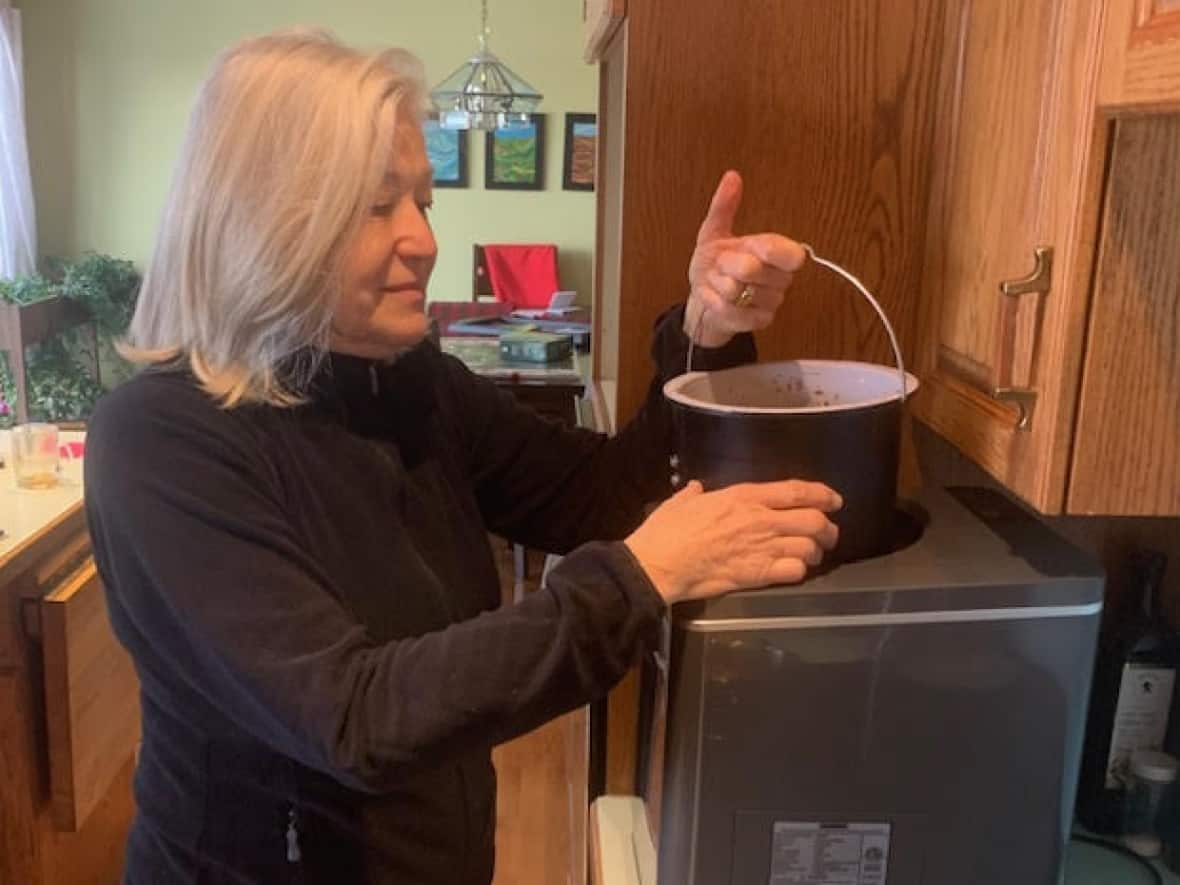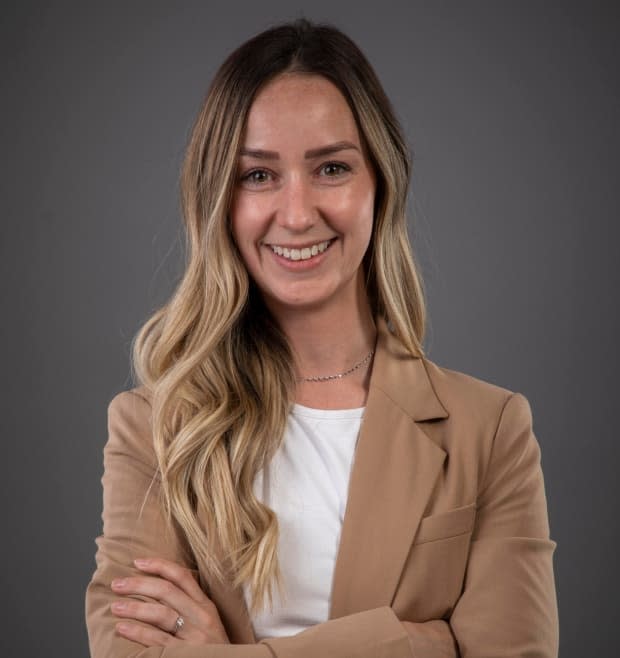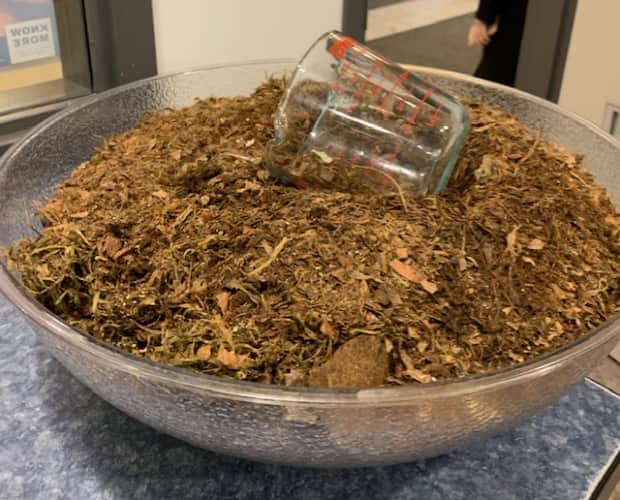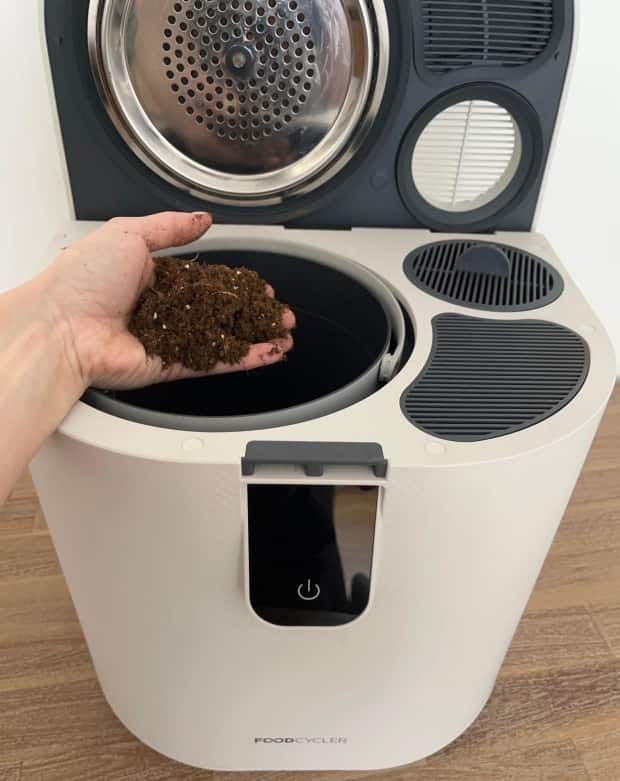Turning food scraps into 'foodilizer': What northwestern Ontario communities are doing to repurpose waste

Several municipalities in northwestern Ontario are partnering with a Canadian company that's working with municipalities across the country to help residents get rid of their food scraps in a more sustainable — and less smelly — way.
Food Cycle Science Corporation, based in Ottawa, makes electronic devices called FoodCyclers that grind and dehydrate food waste, reducing it to 90 per cent of its original weight and volume in under eight hours. It's an alternative to compost that's sustainable and largely odourless.
"What you're left with is a dry, sterile, nutrient-rich soil amendment that can be used instead of fertilizer in gardening applications," said Jessica Taylor, Food Cycle's municipal program manager.
Taylor said the company is working with 44 municipalities — and counting — across Canada, and is now branching into the U.S. In northwestern Ontario, these include Neebing, Fort Frances, Terrace Bay, Red Lake and Kenora.
Municipalities start with a 12-week trial run, where residents purchase FoodCyclers and track their usage and how much waste is diverted. When Food Cycle reports back the findings, local councils decide whether to expand to more households.
There are two types of FoodCyclers:
The 2.5-litre FC-30, best for individuals or couples, and the five-litre Maestro, recommended for larger households. They're designed to last between six and seven years, and seven and 10 years, respectively.
The municipal program helps smaller municipalities that can't afford a curbside compost program or whose landfills are close to being full. It's also appealing to more rural communities where residents are hesitant to do backyard composting because of wildlife, said Taylor.
"We can really create these custom solutions for municipalities based on their needs," she said.

The City of Nelson, B.C. said if its next pilot project with 1,600 FoodCyclers is successful, it will buy more devices and distribute them to all local residents by 2024.
Saving smaller municipalities money, space
The Municipality of Red Lake did its first 12-week trial from August to October 2022. The results determined about 242 kilograms of food waste would be diverted, per household, per year, based on the findings from the 110 households in the pilot.
The municipality's waste disposal site was capped and closed in 2017. Since then, the community's waste has been going 70 kilometres southeast to the landfill in Ear Falls, and the transportation isn't cheap, said Red Lake Coun. Janet Hager.
Red Lake's pilot project with Food Cycle began after councillors found out about the the City of Kenora's partnership with the company.
"Normally, we would transfer anywhere up to like … 520,000 [kilograms of waste] down to Ear Falls each year, so any reduction in that per household is very beneficial," said Hager.
The pilot also showed a reduction in the number of garbage bags used by residents, who pay $2.50 per bag tag for curbside collection.

"I think the bonus was that people became really aware of the food waste and were motivated to try and use less food," said Hager.
She has her own FoodCycler and saves what she calls "foodilizer" for her garden.
On Monday, council voted in favour of running a second pilot project, purchasing 50 smaller-sized FoodCyclers and 50 larger ones at a municipal cost of $13,300, as well as refillable filter cartridges and filter packets at a recoverable cost of just under $2,600.
At Red Lake District High School, Hager said, the hospitality teacher purchased two FoodCyclers, which teaches students about reducing food waste. The soil amendment is then used in the school's community garden.
"I think we need to make a stronger connection with how each individual can do things in small ways to help change where we're going and what the future might look like," Hager said.
Food Cycle and participating municipalities provide subsidies so residents can purchase the devices at a cheaper rate. The FC-30 is expected to cost about $150, with the larger Maestro around $300, in both Red Lake and Kenora.

City of Kenora council voted in favour of expanding its Food Cycle program on Thursday night, allocating $84,750 plus taxes for 250 FoodCyclers and an additional $10,000 for replacement filters.
Danica Farion, the city of Kenora's executive assistant, said the initial pilot conducted from October 2021 to January 2022 found that 240 kilograms of waste would be diverted from the landfill, per household, per year, based on the findings from the 250 households in the pilot project. That's the equivalent of 60 tonnes, or taking 220 cars off the road.
"People felt that they were contributing a lot more to the environment, and they also found that they weren't having to spend as much money getting rid of their waste, their garbage, at the end of the week because they weren't producing as much," Farion said of the initial trial.
Since more produce is consumed in the spring and summer, the second pilot will be run in the warmer months, when more waste is expected to be diverted than in the first trial. After that, the city will look into whether a more comprehensive program is worthwhile, said Farion.
Food Cycle Science Corporation is a finalist in Impact Canada's Food Waste Reduction Challenge. All the funds the company receives from Impact Canada are redistributed into its municipal programs. However, the federal funding ends in May, unless the company makes it to the next stage of the challenge or the funds have been fully allocated.
"Now would be a really great time for municipalities to reach out to us to take advantage of that federal funding ... they can reach us at municipal@foodcycler.com," said Taylor.


